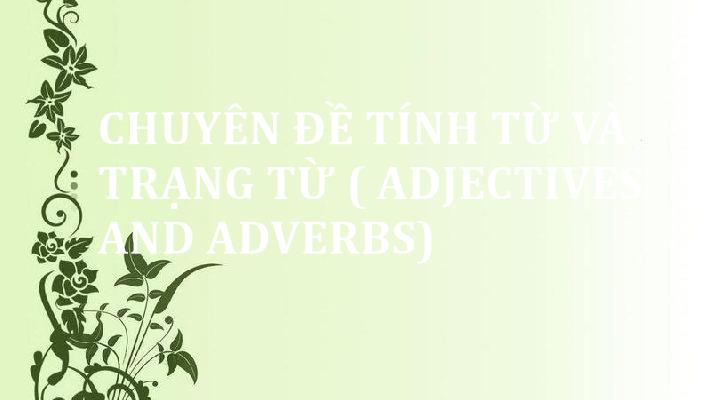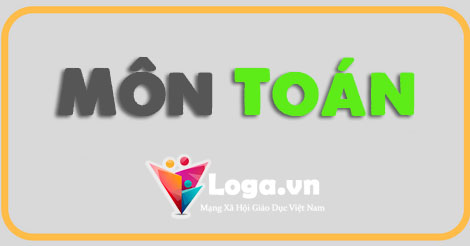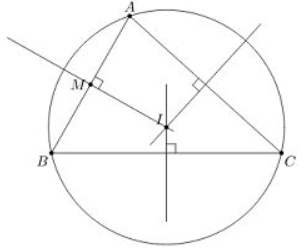UNIT 2: SCHOOL TALKS
I, Vocabulary:
- above (prep): ở trên; bên trên
Ví dụ: Above the TV lies the air- conditioner
- attitude (n): thái độ
Ví dụ: I don’t agree with her attitude towards love.
- bike (n) (C): xe đạp
Ví dụ: I ride a bike every afternoon.
- crowded (with): đông đúc
Ví dụ: This city is crowded with people.
- enjoy doing st: thích
Ví dụ: I enjoy playing football very much.
- entertainment (n): sự giải trí
Ví dụ: There isn’t much entertainment in that small town.
- flat (n): căn hộ
Ví dụ: She has just bought a new flat.
- high school (n) [C/U]: trường trung học phổ thông
Ví dụ: My sister is studying in a famous high school.
- hobby (n) (C): sở thích
Ví dụ: What is your hobby? – Collecting stamps.
- household task = household chores(n): công việc nhà
Ví dụ: Everyone in my family has to share the household tasks.
- mall (n): khu thương mại
Ví dụ: There is a new mall opened near here.
- narrow (adj): hẹp
Ví dụ: The room is to narrow for us to live in
- international (adj): quốc tế
Ví dụ: My brother has been working for an international enterprise for 2 years.
- opinion (n): ý kiến
Ví dụ: In my opinion, you shouldn’t do that.
- profession (n) (C): nghề; nghề nghiệp
- teaching profession (n): nghề giáo
Ví dụ: Which profession do you prefer: teaching or selling?
- safety (n): sự an toàn
Ví dụ: I’m so anxious about her safety.
- traffic (n): giao thông
Ví dụ: The traffic in big cities is really terrible.
- worry (about): lo lắng
Ví dụ: Don’t worry too much about the result. It’s gonna be OK
- awful (adj): khủng khiếp
Ví dụ: I hate thí awful weather.
- backache (n): bệnh đau lưng
Ví dụ: My grandma has to suffer backache for a long time.
- cold (n): cảm lạnh
Ví dụ: She’s got a cold after walking in the rain.
- conversation (n): cuộc hội thoại
Ví dụ: They are making a big conversation for the plan.
- headache (n): bệnh đau đầu
- rest (n,v): sự nghỉ ngơi
Ví dụ: The doctor advised her to rest in bed.
- tired of doing st: mệt
Ví dụ: I’m tired of walking all day.
- toothache (n): nhức răng
Ví dụ: My boy has a toothache because of eating so much candies.
- alone (adv): một mình
àlonely (adj)
Ví dụ: Rainy days make me feel lonely.
- comfortable (adj): thoải mái
Ví dụ: The sofa is so comfortable that I buy it immediately.
- go for a swim = go swimming: đi bơi
Ví dụ: It’s so hot. Let’s go for a swim.
- plan (v): dự định
(n):kế hoạch
Ví dụ: What is your plan about the future?
- semester (n) (C): học kỳ
Ví dụ: She has the highest mark in the class this semester.
- block capital (n): chữ in hoa
Ví dụ: Write your name in block capital, please.
- employee (n): người lao động
Ví dụ: The employees are going on the strike.
- employer (n): người sử dụng lao động (chủ)
Ví dụ: My employer is so kind that everyone looks up to him.
- enrolment form (n): mẫu ghi danh
Ví dụ: Let me print the enrolment form for you.
- female (adj): (thuộc) phái nữ >< male (adj): (thuộc) phái nam
Ví dụ: The male doesn’t dominate the female no more.
- fill in (v): điền vào
- form (n): mẫu
Ví dụ: Please fill in this form to register in the course.
- marital status: tình trạng hôn nhân
Ví dụ: Fill in this marital status column please.
- occupation (n): nghề nghiệp; công việc
Ví dụ: What is your occupation? – Worker.
- provide (v): cung cấp
à provide sb with st =provide st for sb
Ví dụ: The river provides water for the residents living here.
- as a result: kết quả là
Ví dụ: He played game so much, as a result, he failed the exam.
- counsin (n): anh/chị/em họ
Ví dụ: My litte cousin is so cute.
- guy (n): anh chàng, gã (tiếng lóng)
Ví dụ: He is such a bad guy.
- improve (v): cải thiện
Ví dụ: Your English is improved a lot.
- in a hurry: vội vã
Ví dụ: She is in a hurry because of getting up late.
- look for: tìm kiếm
Ví dụ: I’ve been looking for my glasses for 15 minutes.
- marvellous (adj): kỳ diệu
Ví dụ: So marvellous is the cave that everyone is taking photos.
- memory (n): trí nhớ
Ví dụ: My mother has a good memory of what happened.
- nervous (adj): hồi hộp
Ví dụ: I’m sonervous about the result.
- pay attention to: chú ý; tập trung
Ví dụ: Pay attention to what the teacher is saying.
- post (v): gửi thư
Ví dụ: Post this letter for me, will you?
- relaxing (adj): thư giãn
Ví dụ: Now i feel so relaxing after talking to my friend.
- situation (n): tình huống
Ví dụ: In this situation, you shouldn’t say anything.
- target (n): mục tiêu
Ví dụ: Your target won’t be reached unless you try.
- threaten (v): đe dọa
à be threatened with st: bị đe dọa
Ví dụ: My neighbor threatened to call the police unless we stopped making noise.
II, Structure:
1.Wh - Question
Câu hỏi bắt đầu bằng Wh (What, Who, Which, Where, When, Why, How,...) thường được hỏi theo những cách dưới đây
ü Đối với động từ tobe
Wh-question + be + S + complement (vị ngữ)?
Ví dụ: What are you interested in?
Where are you from?
ü Đối với động từ khiếm khuyết (may, might, can, could, must, ought to,...)
Wh - question + modal verb + S + main verb?
Ví dụ: How can you finish such a difficult task?
Why must you go on a diet?
ü Đối với thì tương lai will và shall
Wh - question + will/shall + S + main verb?
Ví dụ: Where will you go?
What shall I do?
ü Đối với động từ thường
Wh - question + auxiliary verb (trợ động từ) + S + main verb?
Ví dụ: Where do you live?
How do you spell your name?
2.Gerunds and to infinitive:
v Động từ nguyên thể (to + infinitive)
- Diễn đạt mục đích
Ví dụ: I went out to buy some food.
- Theo sau một số động từ:
+ Công thức S + V + to-V:
o Promise to do st: hứa làm gì
o Hesitate to do st: do dự làm gì
o Decide to do st: quyết đinhn việc làm gì
o Want/need to do st: cần làm gì
o Hope to do st: hi vọng làm gì
o Fail to do st: thất bain
o Mean to do st: có ý định làm gì
o Prepare to do st: chuẩn bị
o Agree/ Disagree to do st
o Plan to do st: lên kế hoạch làm gì
+ Công thức S + V + O + to-V:
o Advise sb to do st: khuyên ai làm gì
o Permit sb to do st: cho phape ai làm gì
o Force sb to do st: ép ai làm gì
o Persuade sb to do st: thuyết phục ai làm gì
o Invite sb to do st: mời ai làm gì
o Encourage sb to do st: động viên
o Cause sb to do st: buộc ai làm gì
o Allow sb to do st: cho phép ai làm gì
o Ask/ tell sb to do st: yêu cầu ai làm gì
o Hire sb to do st: thuê ai làm gì
- Theo sau một số tính từ: happy, glad, sorry,…
Ví dụ: I’m so glad to see you again.
- Sử dụng trong công thức “would like /love/prefer”
Ví dụ: He would prefer to visit Hanoi again.
- Theo sau một số danh từ: surprise, fun,…
Ví dụ: It’s gonna be a fun to take part in this campaign.
- Sử dụng trong cấu trúc be adj enough to do st: đủ như thế nào...
Be too adj to do st: quá ntn đến nối ko thể
Ví dụ: She is too young to get married.
- Xuất hiện trong một số cụm: to tell you the truth, to the honest, to begin with,…
Ví dụ: To be honest, I didn’t do my homework last night.
- Sử dụng làm chủ ngữ của câu
Ví dụ: To pass the exam, you have to work harder.
- Sử dụng để bổ sung ý nghĩa cho chủ ngữ, thường đứng sau động từ “to-be”
Ví dụ: What I put on my priority now is to pass the entrance exam to university.
- Sử dụng để xác định nghĩa, thêm thông tin về một danh từ trừu tượng
Ví dụ: Jones’s desire to play football for national team became an obsession.
ü Danh động từ (gerunds)
- Sử dụng như danh từ
Ví dụ: Reading books is my hobby.
- Theo sau một số động từ:
Avoid doing st: tránh làm gì
Appriciate doing st: đánh giá cao việc làm gì
Consider doing st: cân nhắc việc làm gì
Deny doing st: phủ định việc làm gì
Finish doing st: hoàn thành việc làm gì
Practice doing st: thực hành làm gì
Miss doing st: bỏ lỡ việc làm gì
Mind doing st: phiền, ngại
Keep doing st: cứ làm gì
- Sử dụng trong một số cấu trúc:
+ It’s (no) good + V-ing,
=it’s not worth + V-ing,
=There is no point in + V-ing, …
Ví dụ: It’s no good telling him the truth.
+ S can’t bear/ stand/ help V-ing
Ví dụ: I can’t stand staying up late.
+ S have difficulty (in) V-ing
Ví dụ: She has difficulties in using chopsticks.
+ S spend st V-ing
Ví dụ: I spend 2 hours a day playing the guitar.
NOTE:
ü Stop doing st: dừng việc đang làm
Stop to do st: dừng lại để làm gì
ü Remember doing st: nhớ việc đã làm
Remember to do st: nhớ việc phải làm
ü Try doing st: thử làm gì
Try to do st: cố gắng làm gì
ü Forget doing st: quên việc đã làm
Forget to do at: quên việc phải làm
ü Like/ hate/ enjoy doing st: sở thích từ lâu, luôn luôn
Like/ hate/ enjoy to do st: sở thích ở hiện tại, ko kéo dài lâu
III, Exercises:
Ex1: Put a eircle round the letter of the correct word (s) to use in each blank.
1.A:.......... can I do for you? B: I just want to look around
A.What B.Which C.Who D.When
2. …………is your sister? – She is eighteen years old.
A. How long B. How far C. How old D. How
3. …………is that dress? – 260,000VNĐ
A. How much B. What C. How many D. Which
4. …………bag are you carrying? – Judy’s.
A. Which B. What C. Who’s D. Whose
5. …………tidies the class today? – Jennie
A. Whose B. Who C. Where D. When
6. …………is your new school? – It’s very big and friendly.
A. What B. How C. Where D. Which
7. …………is it from your school to your house? – About 4 kilometers
A. How far B. How long C. How often D. How much
8. …………is your national flag? – Red and yellow.
A. What B. Which of color C. What color D. Which color
9. …………do you go to school? – Six days a week.
A. When B. How long C. What time D. How often
10. …………were you born? – In 2000.
A. Where B. When C. What time D. How long
Ex2: Fill in the blank
1. Vu is interested in (play)....... the guitar.
2. I’d rather you stopped (smoke)....... here.
3. They asked me too much although i don’t like (question)......
4. I started (learn)....... English six years ago.
5. She wore sunglasses and wig to avoid (recognize).........
6. My mother allows (go)....... out late at weekends.
7. The doctor advised her (rest)....... in the bed.
8. He isn’t tall enough (reach)....... the ladder.
9. “Your shoes need (clean)....... right now.” Said my father.
10.”Would you mind (lend)...... me your pencil?” tom asked me.
KEY:
Ex1:
1. A :lời đề nghị giúp đỡ ai.
2. C :câu hỏi về tuổi tác.
3. A :câu hỏi về giá cả
4. D :câu hỏi chỉ sự sở hữu
5. B :câu hỏi cho chủ ngữ
6. B :câu hỏi về tính chất, mức độ
7. A :câu hỏi về quãng đường bao xa
8. D :câu hỏi về màu sắc
9. D :câu hỏi về mức độ thường xuyên
10.B: câu hỏi về thời gian
Ex2:
1. Playing
2. Smoking
3. Being questioned
4. Learning
5. Being recognized
6. Going
7. To rest
8. To reach
9. Cleaning
10.Lending







